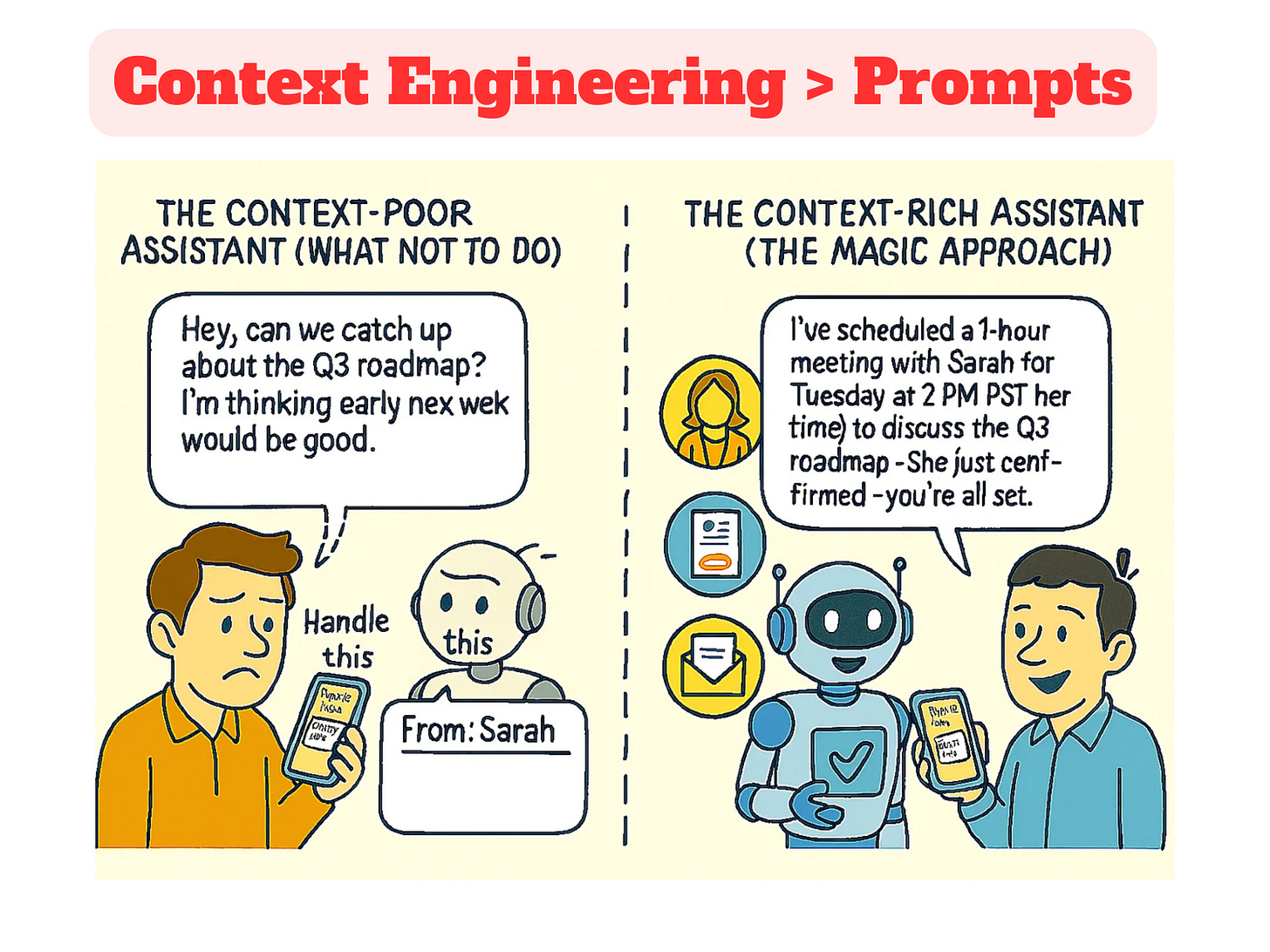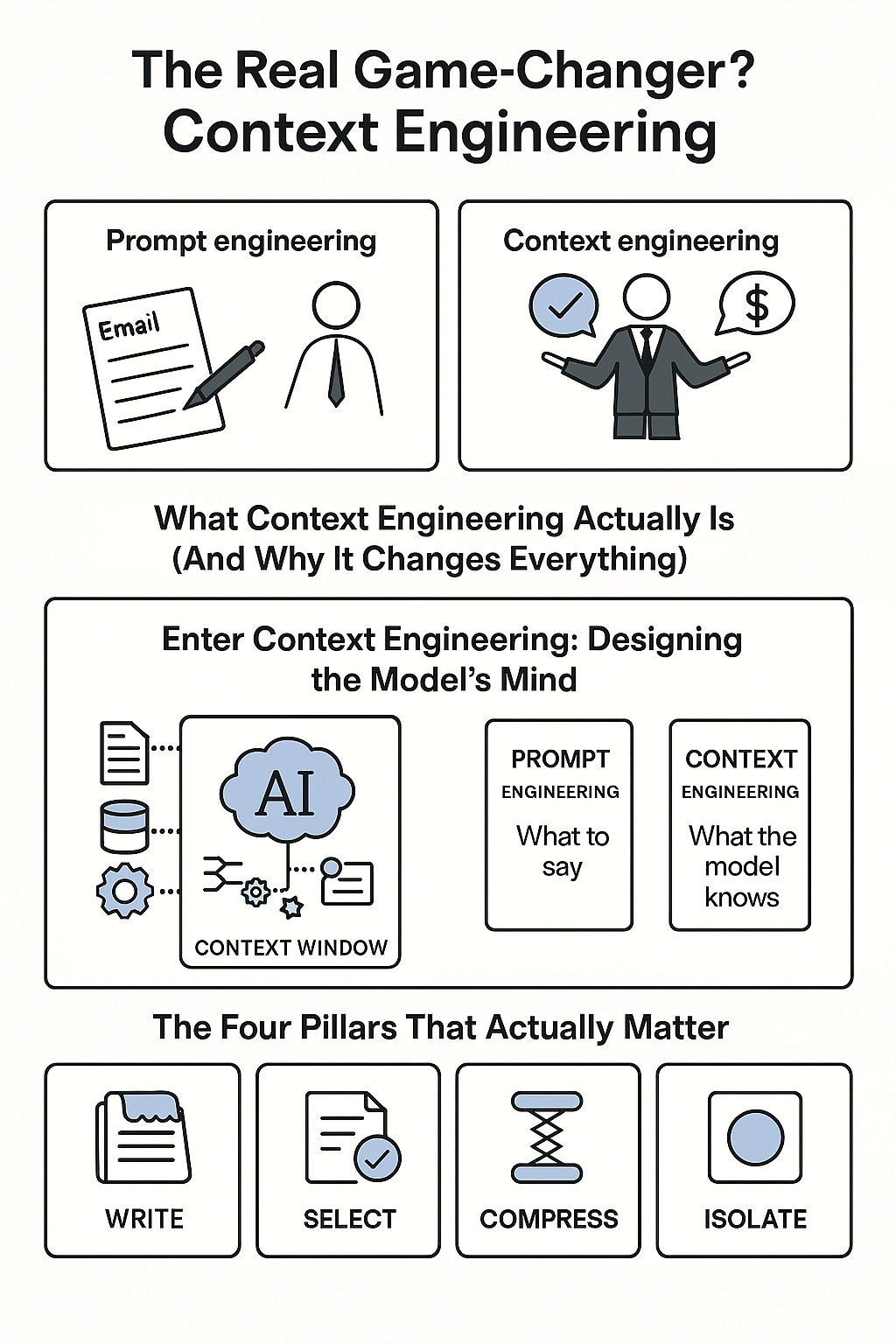🏆 Context Engineering > Prompts: What I Learned Building AI Products That Actually Work
Context-Management Playbook for Leading AI Assistants (ChatGPT, Claude, Gemini, and Perplexity)
The real game-changer? Context engineering. 🧠
I first heard this term from Shopify's CEO, Tobi Lütke, then saw Andrej Karpathy enthusiastically endorse it. Now, after building and breaking dozens of AI products, I can tell you with certainty: context engineering is what separates amateur AI experiments from production-ready systems that actually work.
What Context Engineering Actually Is (And Why It Changes Everything)
Think of it this way: if prompt engineering is like writing a really good email, context engineering is like being a skilled negotiator who knows exactly what information to share, when to share it, and how to frame it for maximum impact.
Context engineering is the art of providing all the context for the task to be plausibly solvable by the LLM. It's about designing the entire information environment around your AI system.
Here's where it gets interesting. An LLM's context window is like its working memory. Just like you can't think clearly when your desk is cluttered with irrelevant papers, an AI can't perform well when its context is filled with noise.
The difference is profound. Prompt engineering asks: "How do I phrase this request?" Context engineering asks: "What does this AI need to know to consistently deliver great results?"
The Four Pillars That Matter
After studying the best AI implementations, I've identified four fundamentals:
WRITE: Create persistent memory. Your AI needs to remember beyond single conversations - user preferences, project history, learned patterns.
SELECT: Intelligent retrieval. Pull in only what's relevant for each task instead of dumping everything into context.
COMPRESS: Manage scarcity. Context windows have limits. Keep essential info, remove noise through smart compression.
ISOLATE: Prevent interference. Different contexts need boundaries so they don't contaminate each other.
The Anatomy of Context: A Product Leader's Guide to the LLM's Working Memory
Keep reading with a 7-day free trial
Subscribe to The Product Channel By Sid Saladi to keep reading this post and get 7 days of free access to the full post archives.



